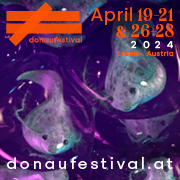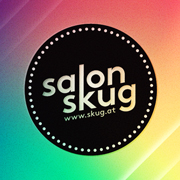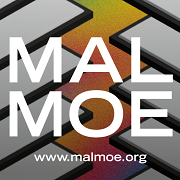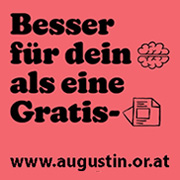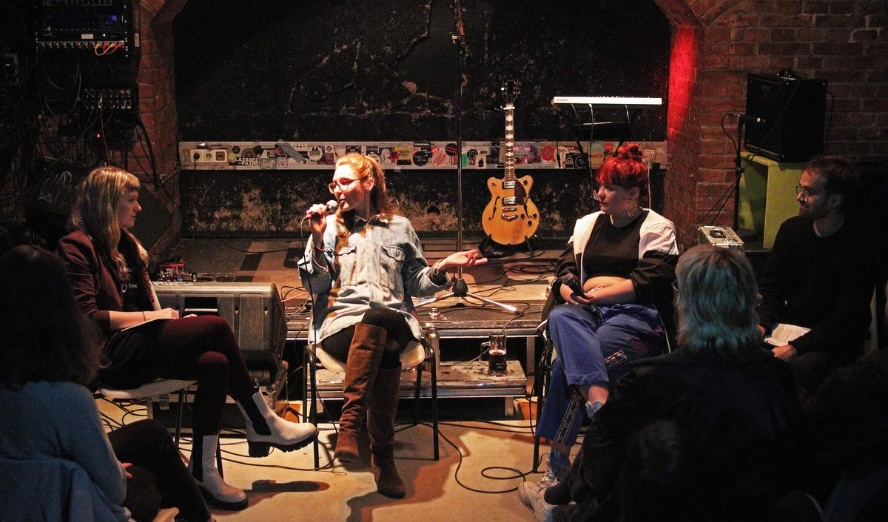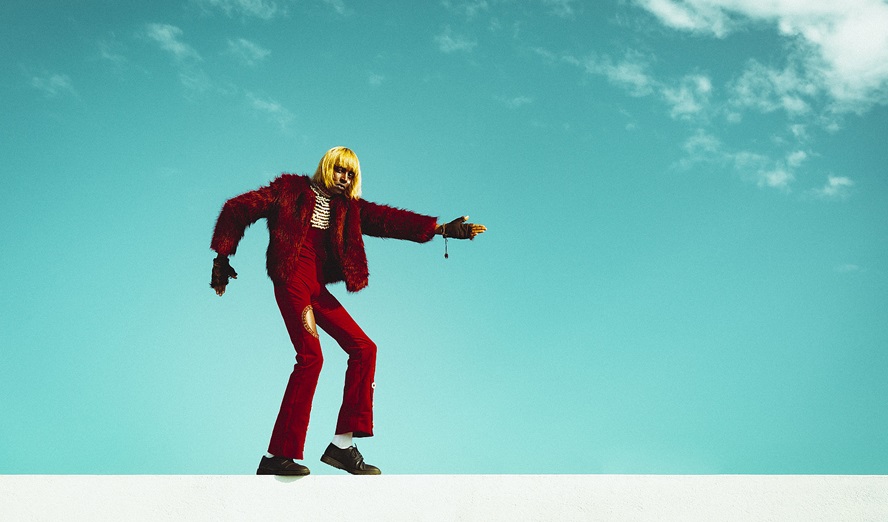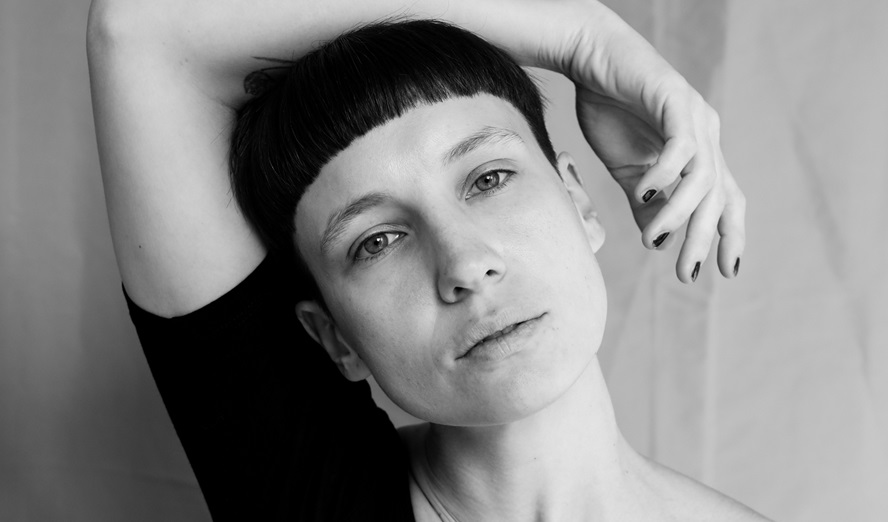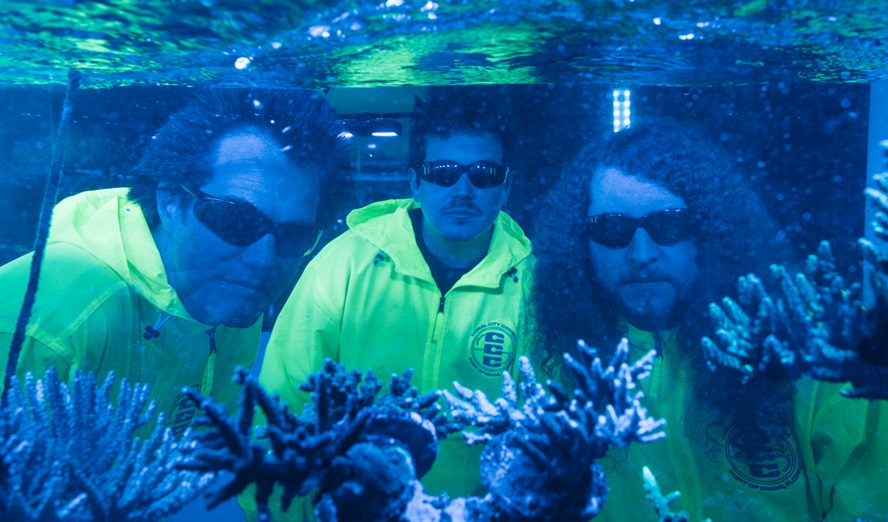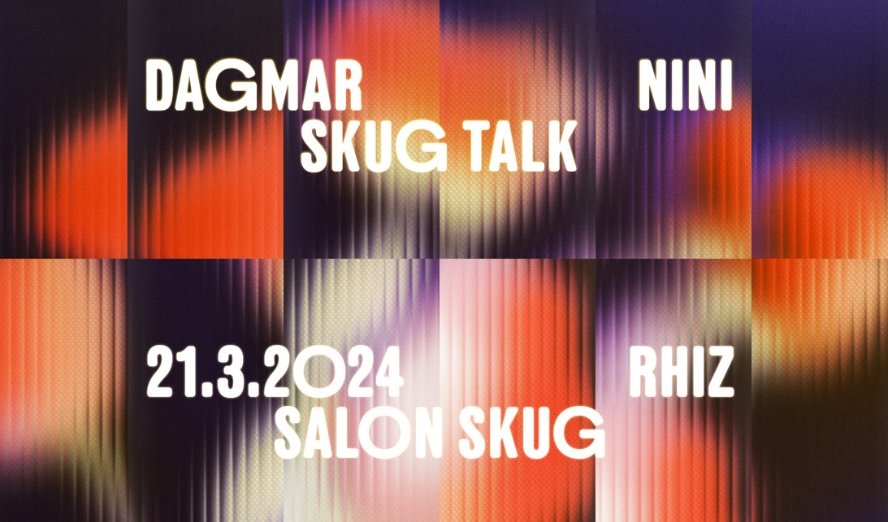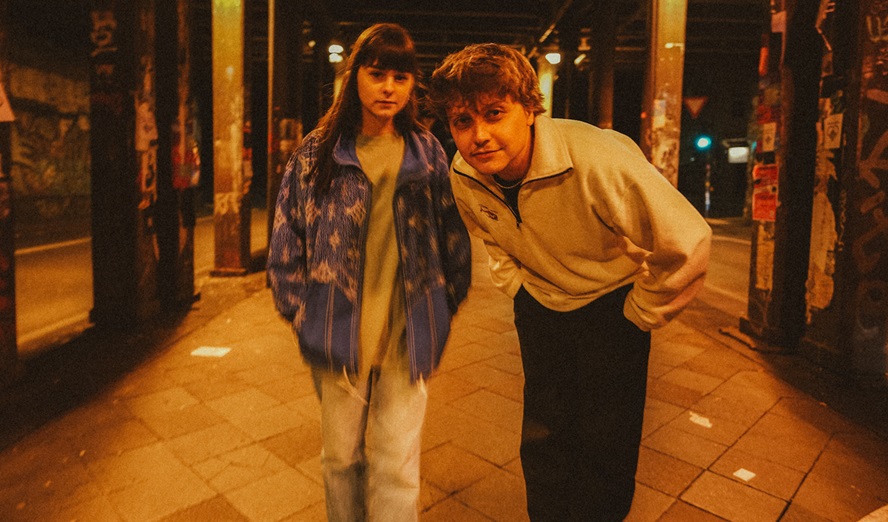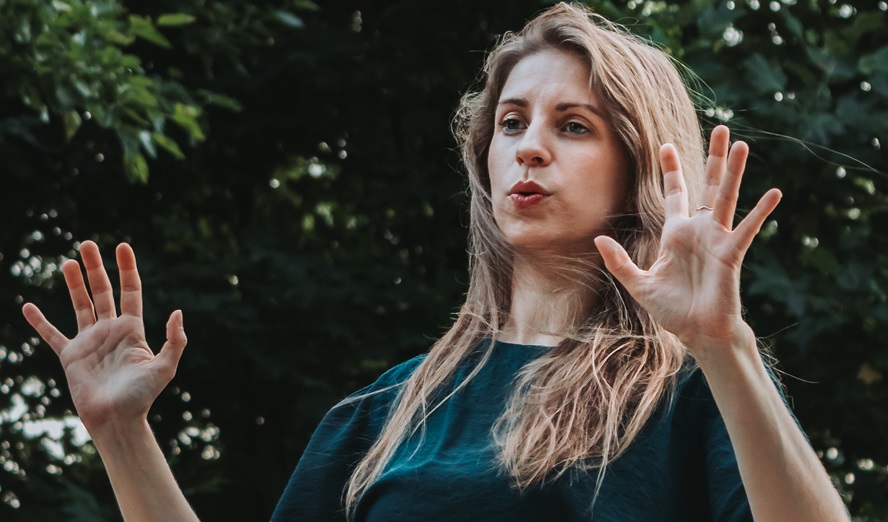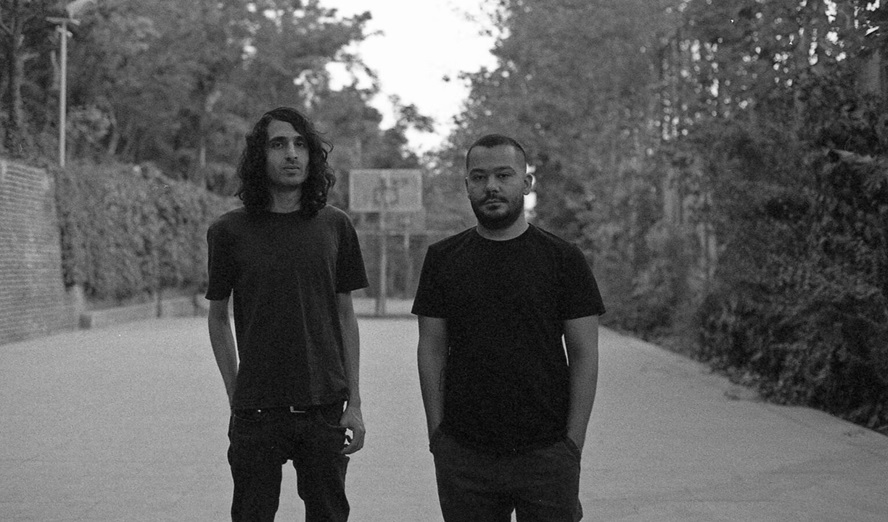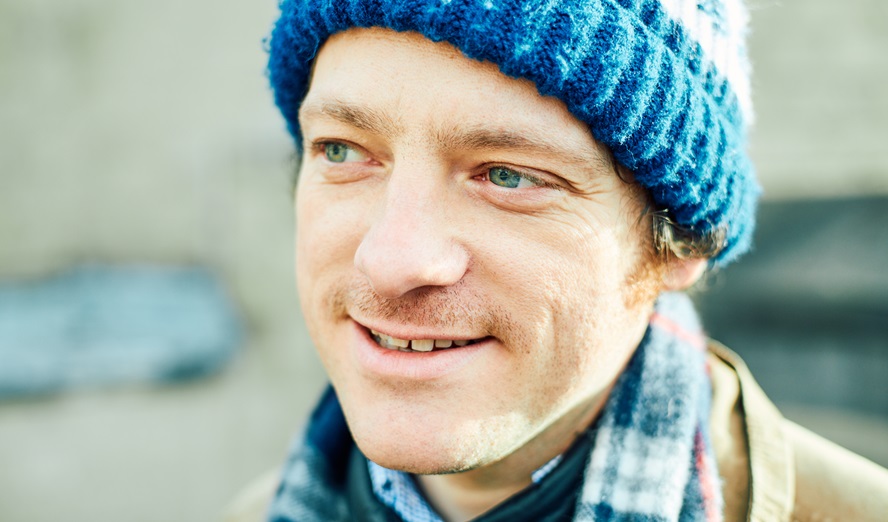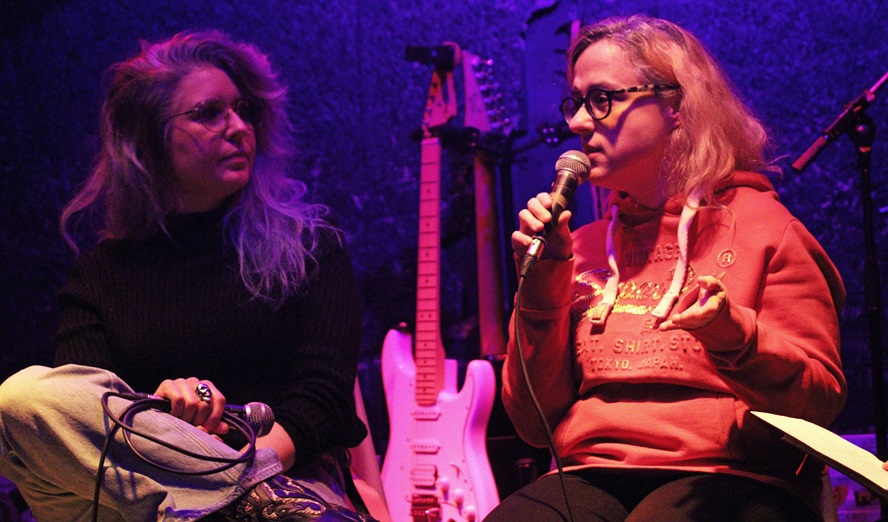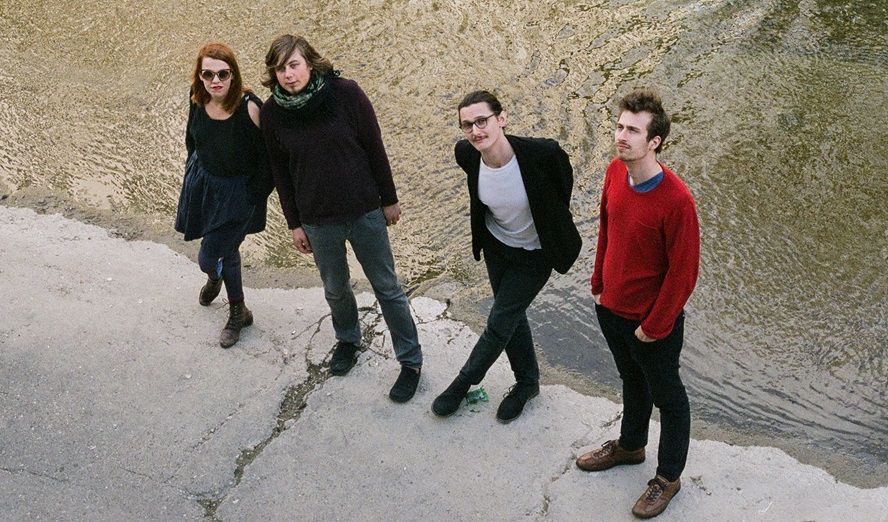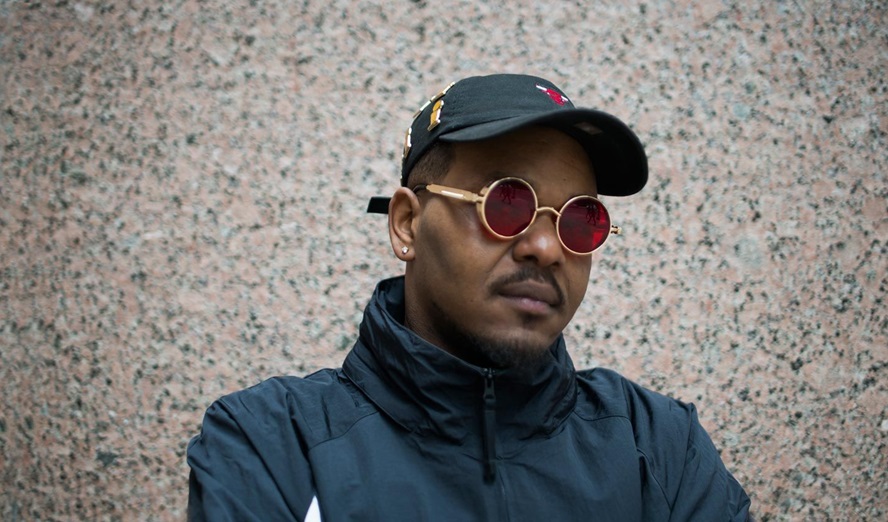skug: Strange. In former decades music aficionados often times went to the United States to find out about what’s going on in the music world. Nowadays, as in your case, it is the other way round: You went on a student exchange program, flew to Berlin, Germany, and got into the club scene there.
Holly Herdon: The influences in my music flow in both directions. I would say there is a heavy influence from the Bay Area as well as from Berlin.
When have you been to Berlin (from/to)?
I was there multiple times; it wasn’t linear. But I was there for a five year stretch from 2003-2008.
Why did you go on a student exchange program?
I was exchange student for the first time when I was 16 because I grew up in East Tennessee and was curious about other communities. It was extremely eye opening; I immediately fell in love with the city and knew I wanted to go back for a longer period.
What were your musical preferences before you came to Berlin? What musical styles, acts did you listen to before Berlin? I read you grew up in Tennessee and there were only radio stations playing Country music and Bluegrass?
It’s really hard to say, because I went there when I was a teenager and was coming from a place with much less access to music than we have now. I mostly listened to music on MTV and on the radio and sang classical music (Mozart, Haydn) in school and church choir. I would check things out from the library occasionally. There was a lot of Folk, Country and Bluegrass where I grew up.
What were your early hip musical influences?
When I moved to Berlin in 2003 it was the height of Minimal Techno, which I still enjoy. There were marathon party events where people would play for 12 hours or something crazy, really changing the scale of a listening experience. I was heavily involved in the club community for years and then became curious about other music communities in the city. I started working at West Germany and going to a bunch of avant rock shows and also started improvising and becoming interested in that world.
Is your FACT mix 368 what you listen to nowadays? (I like the mix. And I love the track by Sarah Goldfarb »Crashed by Society«)
I’m always changing what I am listening to, but this is a nice sampling of my interests. Of course I couldn’t fit everything that I love into one mix! I love the vocal loop in »Crashed By Society« – such an awesome track.
When did you decide that you seriously wanna work on music?
Serious is an interesting word. I suppose I decided to dedicate more time to music when I decided to go to Mills and pursue a masters in electronic music. It became the focus of my life.
How will you present your music at the Donaufestival (DF) in Krems? Anything specific that you will try out (for the first time) there?
I will be representing the album at that festival with a few new tracks that I am working on. I try to workshop ideas with every new show. There is always an aspect of improvisation as well, so each performance is a little different.
Has your live-set changed since the »Boiler Room London Live Show«?
That was a short set because the environment was unusual. You should just come down and see it! I’m also working on getting my interactive visuals working. They have been buggy, but we are working out the kinks!
Does improvisation play a crucial part when you play live?
It plays a strong part in my writing process, but I am not actively improvising with other artists like I did at Mills. I think it is an important skill to have, it definitely made me less nervous about collaborating, or less hesitant. Some of the key aspects to improvisation can be incorporated into composition and of course performance as well.
What do you prefer: to work on songs on your laptop or to play live?
They go hand in hand, so I don’t like to give one a hierarchy over the other.
Or, what are the advantages of either? What do you want to get across when you play live? Do you have a specific concept?
There are some clear themes on the album that I am workshopping and further exploring in a live environment. I am an advocate for laptop performance, so I try to work with the laptop as an instrument and find ways to bring out some of the unique characteristics that it offers. I am still working this out and it is both challenging and exciting.
Your album »Movement« is a mix of experimental music, pop and dance (often compared to Laurel Halo’s »Quarantine«). A few days ago I read an review that said the groovy parts work better than the experimental. Whereas I especially love the experimental aspect. How did you feel when you worked on the tracks?
I think it is a natural extension of my interests and tastes in music. There wasn’t a conscious decision. I would like to integrate these even more in the future. I think most people have eclectic taste in music, so why not bring these together into one record or one concert.
Do you already have an idea in which direction your next works will head?
That is in the works …
What did you do at the composition class in the last few weeks?
I’m thinking about bi- and polytonality right now and wondering if it can work outside of the academy.
Will there be a new output (album/EP/song) within the next weeks/months?
It takes me time to write because I am studying and also because I highly edit my music. I am not in a race to release as much as possible. I would rather have quality over quantity. That being said, I am releasing a single on a compilation sometime in the next month or so, depending on their production, through Public Information. I am also doing a remix or two and working on a single for summer release.
While watching your YouTube »Holly Herndon defends laptop musicians« all of a sudden I had the impression you don t communicate with a computer, but with a living being. Once you said the laptop is the most personal instrument that the world has ever seen. What did you mean by that?
The laptop has access to more personal information about the player than any instrument in history. There are a lot of mediated personal experiences that happen through that machine. I don’t know about you, but it is a huge part of my life.
Yep. The future is now! The digitalization of music also brings about, on different levels, the democratization of music. For instance, today we don t need no rock band formation to make the craziest music the world has ever heard. On the other hand, you said, you realized that you can put weird parts in the background of a composition. Why in the background and not up front?
I think I do both – put ‚weird‘ things in the fore and background. What I meant by that was that if you have something that the body automatically reacts to, like a pulse, that perhaps come from our experiences of hearing our mothers‘ heart beats as we were a fetus, then you can really challenge and expand the palette of the composition because the body has already been engaged. Of course you can do this without a pulse. But this will not be reached by as many people and might then be a cerebral exploration, which is a different and perfectly valid experience.
The voice plays an important role in your music? How come?
This is too big to answer here. Please see my writing on this subject 🙂
Do you see yourself as a composer, a musician or a sound engineer?
A combination of all.
Holly Herndon: »Movement« (RVNG Intl.; 2012)
Walter Pontis‘ Interview, translated by Friederike Kulcsar, was partly published in skug – Journal für Musik #94, 4-6/2013

